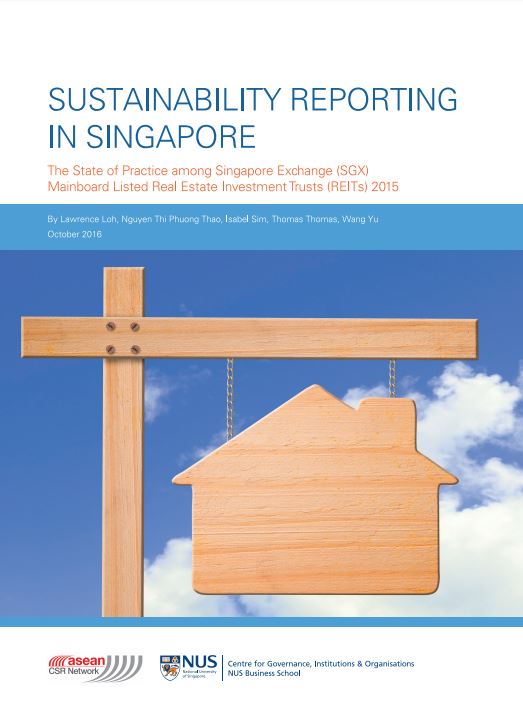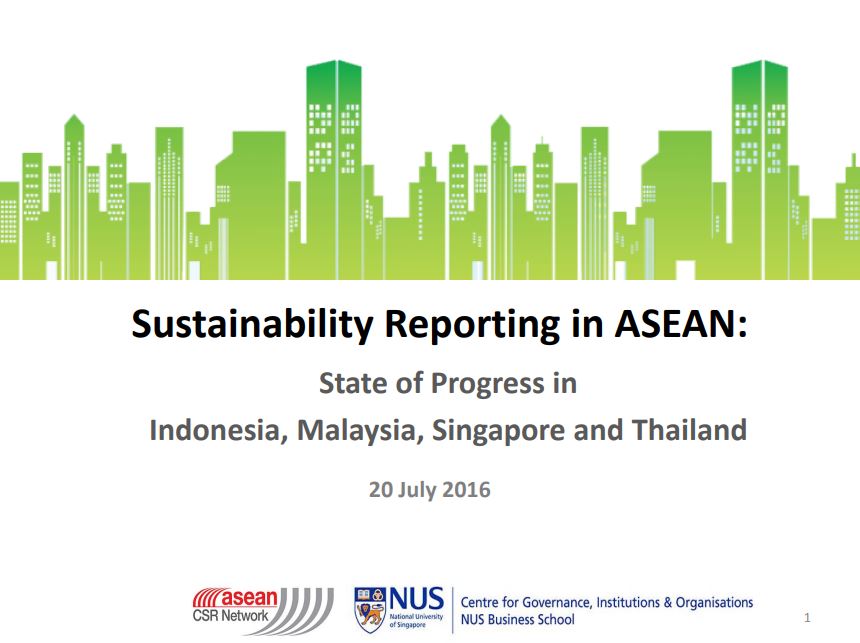Sustainability reporting in Singapore 2016
A study by National University of Singapore (NUS) Business School’s Centre for Governance, Institutions and Organisations (CGIO) and ASEAN CSR Network (ACN) revealed that majority of Singapore companies are still not communicating sustainability.
186 out of a total of 502 mainboard listed companies communicate their sustainability practices, with an average level of disclosure of 43.6 points, an increase from 160 companies in 2013.
Of the 186 companies that had communicated sustainability, 24 adapted the GRI framework, an increase from 19 in 2013. Of these 186 companies, 24 companies made materiality disclosures, largely related to areas under the social indicator.
26 blue chip companies on the Straits Times Index (STI) were found to disclose information pertaining to their sustainability practices in a more comprehensive manner than their non-STI counterparts, with a score of 56.8 against 41.4 in 2013. The study also found that the 17 Government-linked Companies (GLCs) performed better in their level of sustainability disclosure than non-GLCs, with a score of 51.9 against 43.3 respectively.
Only 12.9 percent of companies disclosed information about their climate change efforts and even fewer companies disclosed information on biodiversity management efforts.
SUSTAINABILITY REPORTING BY REAL ESTATE INVESTMENT TRUSTS (REITs)
27 out of a total of 33 Real Estate Investment Trusts (REITs) on the SGX communicated their sustainability practices, compared to 21 REITs out of 29 in 2013. The overall level of disclosure increased to 43.6%, from 42.4% in 2013.
Click the picture below to access the report.




